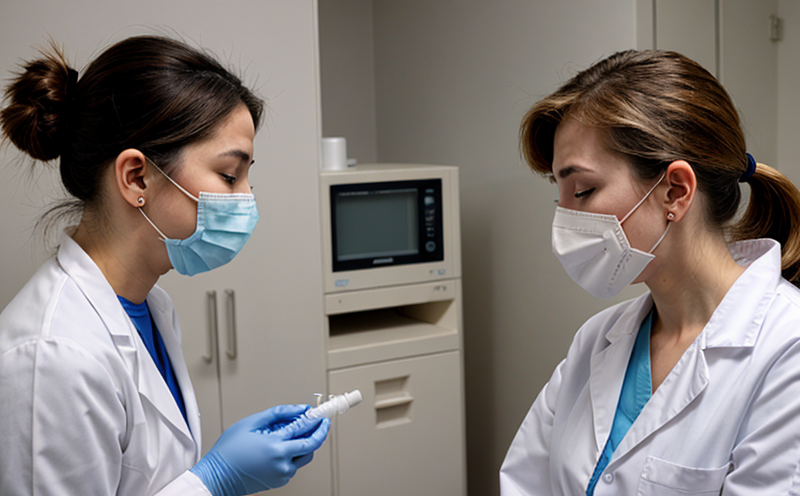Rodent Urine Protein Allergen Testing in Laboratories
In the realm of clinical and healthcare testing, particularly within the domain of allergy and immunology, rodent urine protein allergen testing plays a critical role. This service is essential for diagnosing allergic reactions to proteins found in rodent urine, which can be particularly significant in laboratory settings where rodents are commonly used as test subjects or models.
Understanding the nature of these proteins begins with recognizing that they are primarily composed of albumin and globulin fractions derived from the urine. These components can elicit immune responses in humans, leading to allergic symptoms such as itching, sneezing, and respiratory distress. The testing process involves collecting urine samples from various rodent species commonly used in research—such as mice, rats, and hamsters—and analyzing these for the presence of allergenic proteins.
The methodology typically employed includes extraction techniques followed by quantification using immunoassays like ELISA (Enzyme-Linked Immunosorbent Assay). This approach ensures accurate measurement of the protein concentrations within the urine sample, which can then be correlated with clinical symptoms observed in individuals exposed to these allergens.
Once extracted and quantified, the allergens are further characterized using mass spectrometry or other advanced analytical techniques to identify specific proteins responsible for triggering allergic reactions. This information is invaluable not only for diagnosing but also for developing therapeutic interventions aimed at mitigating adverse effects associated with these exposures.
The importance of this testing cannot be overstated, especially considering its relevance in ensuring safe handling practices within laboratories and minimizing risks to personnel working closely with rodent models. By providing accurate data on allergenic potential, this service supports better informed decision-making regarding experimental protocols and safety measures necessary for maintaining high standards of care.
In summary, rodent urine protein allergen testing is a crucial component in safeguarding both laboratory environments and individuals exposed to such substances. It underscores the importance of precision medicine approaches tailored towards individual sensitivities while promoting safer practices across all aspects of healthcare delivery.
Why It Matters
The significance of rodent urine protein allergen testing extends beyond mere laboratory standards; it directly impacts patient care and research outcomes. For quality managers, ensuring compliance with international guidelines like ISO 15189 or EN ISO/IEC 17025 is paramount. These certifications signify that the laboratory adheres to stringent quality management systems, which are essential for delivering reliable test results.
Compliance officers must also consider how rigorous testing procedures contribute to overall patient safety and satisfaction. By minimizing errors through meticulous sample preparation and interpretation of test outcomes, laboratories can reduce instances of misdiagnosis or unnecessary treatments. This not only enhances clinical decision-making but also fosters trust between healthcare providers and patients.
For R&D engineers involved in developing new diagnostic tools or therapies targeting allergic conditions, accurate allergen identification is critical for validating product efficacy and safety profiles. Understanding the exact composition of rodent urine proteins allows researchers to design more effective immunotherapies that target specific allergens rather than broad-spectrum treatments.
Additionally, this service supports procurement departments by facilitating informed sourcing decisions based on verified data about potential allergens in test materials. Ensuring suppliers meet strict quality criteria helps maintain consistency and reliability across various stages of product development and manufacturing processes.
Industry Applications
- Pharmaceutical Research: Identifying allergens in preclinical studies to enhance drug safety profiles.
- Biotherapeutics Development: Ensuring biologics do not contain harmful proteins that could cause allergic reactions.
- Laboratory Animal Science: Monitoring conditions where rodents are used extensively for research purposes.
- Environmental Health: Evaluating potential allergen risks in laboratory settings and occupational environments.
Environmental and Sustainability Contributions
The pursuit of excellence in rodent urine protein allergen testing contributes significantly to environmental sustainability efforts. By adhering to stringent quality standards, laboratories reduce waste generation associated with improper sample handling and disposal practices. Properly trained staff members follow protocols designed to minimize contamination risks while maximizing resource efficiency.
This service also promotes responsible use of laboratory animals by ensuring that all procedures are conducted ethically and humanely. Compliance with regulatory requirements ensures that only necessary tests are performed, thereby reducing unnecessary exposure to potential allergens for both staff and subjects.
In conclusion, rodent urine protein allergen testing plays a vital role in promoting safe working conditions within laboratories while supporting broader goals of environmental stewardship and sustainable practices throughout healthcare industries.





